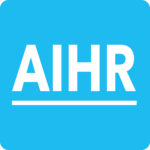
HR Career Map
Map out your dream career and discover your next move
This page is designed for desktop use only.
Step 1. Click any role on the career map to see all the details.
Your career path
Step 2. Tell us about your current role and we'll show variuos directions you can go in. Or build your own custom journey.
Select your current role to see popular career paths
Junior
Senior
Junior
Benefits Administrator
Benefits Manager
Chief Diversity Officer
Chief Learning Officer
Chief People Officer (CHRO)
Comp and Ben Specialist
DEIB Manager
DEIB Officer
DEIB Specialist
Director Total Rewards
Divisional/ Regional HR Head
Global HR Business Partner
Head of Digital HR
Head of Employee Experience
Head of HR
Head of Talent Acquisition
Headhunter
Helpdesk Support Agent
HR Administrator
HR Business Partner
HR Consultant
HR Coordinator
HR Data Administrator
HR Data Scientist
HR Director
HR Officer
HR Operations Manager
HR Project Manager
HR Scrum Manager
HRIS Analyst
Industrial Relations Executive
Industrial Relations Specialist
Internal Comms Consultant
Learning and Development Administrator
Learning and Development Consultant
Learning and Development Manager
OD Administrator
OD Executive
OD Head
OD Specialist
Payroll Administrator
Payroll Manager
Payroll Team Lead
People Analytics Head
Recruitment Consultant
Senior HR Business Partner
Shared Services Executive
Shared Services Manager
Talent Acquisition Specialist
Talent Manager
Talent Researcher
Training Facilitators

Horizontal scroll to see whole map


